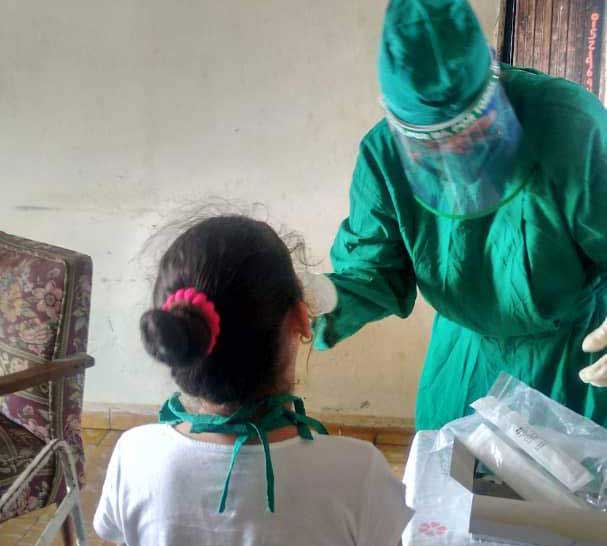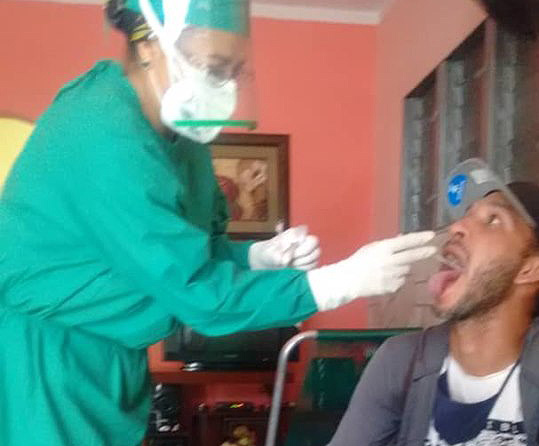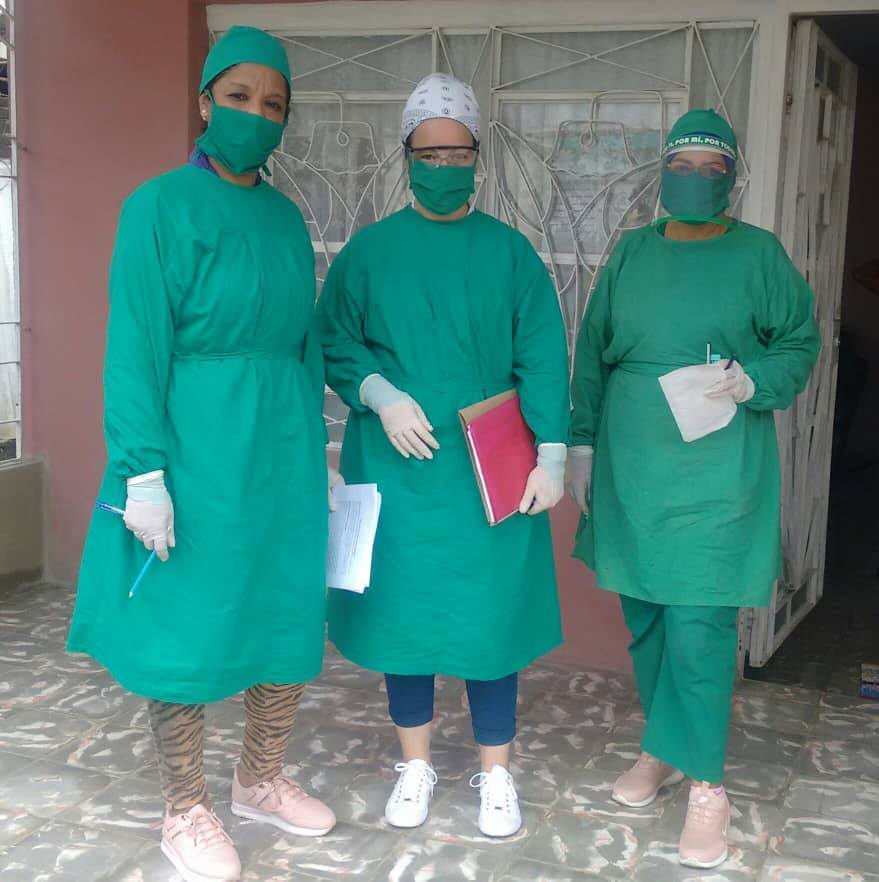 The population study is advancing in the municipalities of Las Tunas and Manatí – as in the whole country - to identify any movement of positive cases to SARS-Cov-2 that has not been detected so far.
The population study is advancing in the municipalities of Las Tunas and Manatí – as in the whole country - to identify any movement of positive cases to SARS-Cov-2 that has not been detected so far.
Las Tunas, Cuba.- Three selfless professionals today encircling COVID-19 in the main municipality. Since May 12, they assume the commitment to carry out here the national study to detect the disease in apparently healthy people, and not to leave loose ends.
These are the specialists in Comprehensive General Medicine, Yohenia Guisao Sánchez, Zahilis Rodríguez Cruz, who is also an official for Primary Care in the provincial capital, and the graduate in Clinical Laboratory, Julia Díaz García. Accompanied by the staff of the clinics to which the selected families belong, they have successfully launched this research.
"The seroprevalence study for COVID-19 aims to know the real dimensions of the disease in Cuba. The choice of participating families was random without a specific criterion, through a computerized program,” Dr. Zahilis, in charge of the team in the Las Tunas municipality, says.
 “It consists of four moments; initially, with the consent of the families, a questionnaire is carried out, endorsed by a scientific council, and the real-time PCR, the diagnosis of which is issued by the Pedro Kourí Institute of Tropical Medicine (IPK). The exercise is repeated three more times, every 21 days, in order to be able to evaluate the results in the 63 days of duration, from the initial sample.”
“It consists of four moments; initially, with the consent of the families, a questionnaire is carried out, endorsed by a scientific council, and the real-time PCR, the diagnosis of which is issued by the Pedro Kourí Institute of Tropical Medicine (IPK). The exercise is repeated three more times, every 21 days, in order to be able to evaluate the results in the 63 days of duration, from the initial sample.”
The survey, she clarifies, includes personal and other data regarding the area of residence, exposure to the virus and history of conditions.
They are seen knocking from door to door, "dressed" for the occasion. And there is no lack of smiles or kindness; nor is the enthusiasm that permeates this new task, despite the dangers to which they are exposed.
"The entire process takes place in the patient's home with all the biosecurity measures and so far we have received the support of the population," Rodríguez says.
The laboratory technician Julia, who already accumulates experience of 38 years in these tasks, remains at her side. And you can see the skill and the desire to do.
She knows how to earn the love and respect of the people. “We try to make the patient feel as comfortable as possible when taking the sample. If there are children in the home, we usually test first for parents to take away their fear.
“We clarify the doubts and of course we thank them for their collaboration. When the day is over and I get home, I immediately take off my clothes and go straight to the bathroom,” she says, aware of the risk.
 And she adds: “at the beginning, I felt a little scared, but we are taking great care of ourselves. Previously, she had already applied rapid diagnostic tests, as part of the Gustavo Aldereguía polyclinic rapid response teams, activated by the appearance of suspects and contacts. However, this is the first time that exudate for PCR is taken at home.”
And she adds: “at the beginning, I felt a little scared, but we are taking great care of ourselves. Previously, she had already applied rapid diagnostic tests, as part of the Gustavo Aldereguía polyclinic rapid response teams, activated by the appearance of suspects and contacts. However, this is the first time that exudate for PCR is taken at home.”
Julia and Zahilis recognize Dr. Yohenia, who was involved in the work; as well as the workers of Cubataxi, so necessary to bring the purpose to a successful conclusion.
There are six medical offices in the provincial capital in which the study is framed; the number 5 from the Gustavo Aldereguía polyclinic health area, the 11, from Potosí, belonging to the “Guillermo Tejas,” the 11 and 37 from "Manuel Piti Fajardo;" and the 10 and 36 from Dumoy, from the "Aquiles Espinosa.”
In the northern area, specifically in the municipality of Manatí, another group of professionals also makes this research possible. Three medical offices were chosen: the Edificio, El Cerro and Tapicería, of the Mártires de Manatí health area.
The province is inserted into this investigation with a total of 45 families from the aforementioned polyclinics, five from each. As of Wednesday, 86 samples for PCR had been sent to the IPK. Those who are positive for COVID-19 will receive the treatment, according to the protocols established in these cases.
Here, 16 patients with the disease have been reported and only one remains admitted to the Fermín Valdés hospital, in Holguín. The incidence rate continues to be one of the lowest with 3.0 per 100,000 inhabitants.
These massive tests are another government effort to detect those who may be infected with SARS-CoV-2 and further protects the health of its citizens. And in this endeavor, professionals swarm willing to offer talent and heart.




